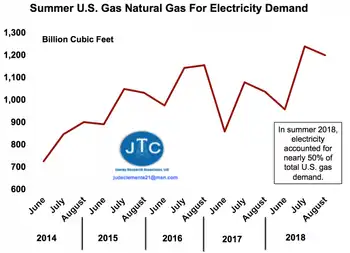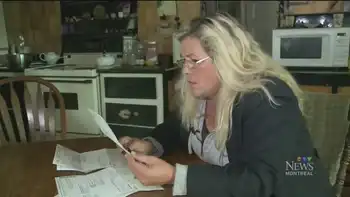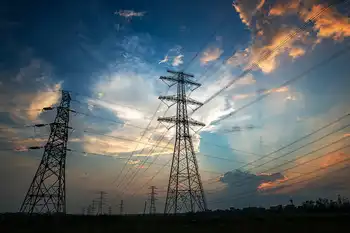TVA had early look at report: watchdog group
By Associated Press
CSA Z463 Electrical Maintenance -
Our customized live online or in‑person group training can be delivered to your staff at your location.

- Live Online
- 6 hours Instructor-led
- Group Training Available
The Tennessean newspaper reports that an accidentally released internal federal document shows that the public power producer, still cleaning up from a massive coal ash spill in 2008, criticized EPA's original draft proposal. That proposal said coal ash should be classified as a 'special' waste, making it fall under hazardous waste rules.
Before the public - including TVA's critics - got to see that original draft, the EPA issued a rewritten proposal last month that added a weaker alternative that would allow each state to decide on any regulations for coal ash, with lawsuits serving as the main enforcement tool.
Other federal departments, including Transportation, Energy and Interior, also commented on the original EPA draft. But TVA, which has nearly 9 million consumers in Tennessee, Alabama, Mississippi, Kentucky, Georgia, North Carolina and Virginia and relies heavily on burning coal to generate electricity, had a direct conflict of interest, said OMB Watch, a D.C.-based group that advocates for open government.
'You have this federal corporation that is at least in part responsible for EPA even writing the regulation in the first place now getting a sneak peak at it,' said Matt Madia, regulatory policy analyst for OMB Watch. 'TVA has the same right to comment as everybody else, but this was happening before the public ever saw it. They were given privilege in this case.'
Coal ash can be laced with varying levels of potentially toxic substances, including lead, arsenic and mercury, and environmental groups have pushed for more than a decade for regulating its disposal.
Barbara Martocci, a TVA spokeswoman, said it would have been irresponsible for TVA not to comment.
'It is standard practice for federal agencies to do that,' she said. 'We do have expertise and knowledge on managing coal ash.'
TVA, which has 11 coal-fired plants, produces about 7 million tons of coal ash a year, with some ponds and unlined dumps holding decades' worth. A huge coal ash spill at TVA's Kingston Fossil Plant in Roane County on December 22, 2008, sent 5.4 million cubic yards of ash into the river and onto nearby private property.
TVA's comment to EPA said coal ash should not receive a special designation because it could make the material difficult to recycle, could be costly and could add to air emissions. Coal ash is recycled in several ways, including as a supplement in cement. Many environmental groups back recycling that seals the coal ash in a material.
Martocci declined to address whether there was a conflict of interest. But, Martocci said, what TVA did was a routine practice and it provided information from its base of knowledge.
'We had comments just like anyone in the public would have comments,' she said.
EPA spokeswoman Betsaida Alcantara said in an e-mail statement that the EPA ultimately made the decisions about coal ash after hearing from government agencies, businesses and the public.
'The proposal opens a national dialogue by calling for public comment on two approaches available under the law for addressing the risks of coal-ash management,' Alcantara said.
Madia said TVA's behind-the-scenes access may or may not have influenced EPA, but the perception is there.
The EPA has maintained that safe recycling of coal ash would be encouraged by regulation as a special waste to avoid the higher costs of disposal.
The industry and TVA have disagreed, saying it could put a stigma on the material and make it difficult to recycle.











